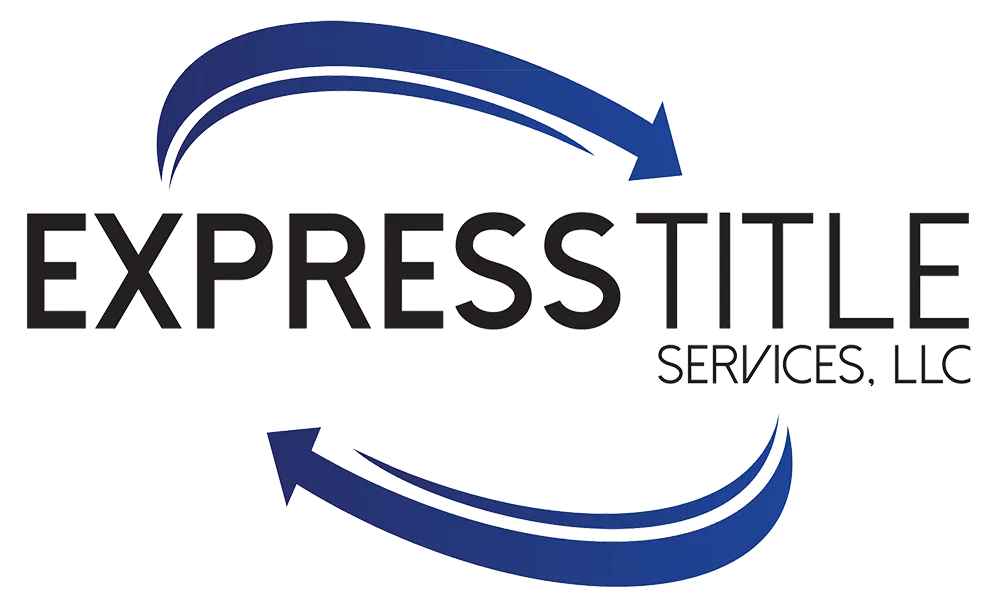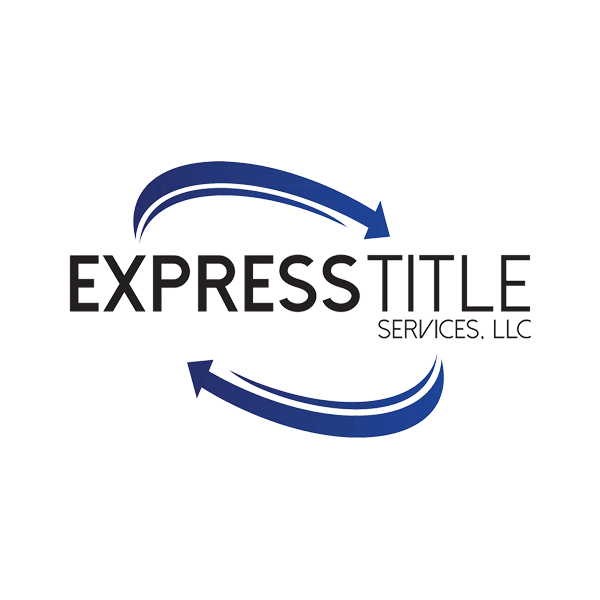Purchasing a home is an exciting milestone, but it’s important to be aware of all the financial aspects involved, including closing costs. In South Florida, these costs can significantly impact your homebuying budget. Being well-informed about closing costs is essential to avoid surprises and ensure a smooth transaction. This comprehensive guide will walk you through everything you need to know about closing costs in South Florida, ensuring you’re well-prepared for this crucial step in the real estate process.
Closing costs are the fees and expenses associated with finalizing a real estate transaction. They include various charges that both buyers and sellers must pay to complete the transfer of property ownership. These costs typically cover services provided by lenders, real estate agents, attorneys, and other professionals involved in the transaction. Understanding these costs in detail will help you budget accurately and make informed decisions during the homebuying process.
In South Florida, closing costs can vary based on several factors, including the purchase price of the property, the location, and the terms of the sale. Common closing costs include loan origination fees, appraisal fees, title insurance, recording fees, and prepaid expenses such as property taxes and homeowners insurance. Each of these costs plays a crucial role in ensuring the legality and smooth execution of the transaction.
Loan origination fees are charged by the lender for processing the mortgage application and underwriting the loan. These fees can vary but typically range from 0.5% to 1% of the loan amount. It’s important to review and understand these fees as they directly impact the overall cost of obtaining a mortgage.
Appraisal fees are incurred to determine the fair market value of the property. Lenders require an appraisal to ensure that the property’s value justifies the loan amount. In South Florida, appraisal fees can range from $300 to $500, depending on the complexity and location of the property.
Title insurance is another significant closing cost. It protects both the buyer and the lender from any potential disputes or claims against the property title. The cost of title insurance can vary but is generally based on the property’s purchase price. In South Florida, buyers typically pay for the owner’s title insurance policy, while sellers cover the lender’s policy.
Recording fees are paid to the county to officially record the change of ownership in public records. These fees ensure that the property transfer is legally documented and recognized. The amount varies by county, but it usually consists of a base fee plus an additional charge per page of documentation.
Prepaid expenses include property taxes, homeowners insurance, and mortgage interest. These costs are collected in advance to ensure that the buyer is up-to-date with their financial obligations. Property taxes are often prorated based on the closing date, while homeowners insurance premiums are typically paid for the first year at closing.
Beyond these common costs, there may be additional fees for inspections, surveys, attorney services, and homeowner association dues, depending on the specifics of the transaction. It’s essential to work closely with your real estate agent and attorney to identify and understand all potential closing costs associated with your purchase.
Being well-prepared for closing costs in South Florida ensures that you have a clear understanding of the financial commitment involved in purchasing a home. By accounting for these costs in your budget, you can avoid last-minute surprises and ensure a smoother, more predictable closing process. This guide will provide you with the knowledge and insights needed to navigate closing costs confidently, making your homebuying experience as seamless and enjoyable as possible.
Understanding Closing Costs
Closing costs are the fees and expenses associated with finalizing a real estate transaction. They are typically paid by the homebuyer and cover various services and processes required to complete the sale. Understanding these costs is crucial for budgeting accurately and ensuring a smooth homebuying experience. Closing costs encompass a wide range of charges that are necessary to transfer property ownership legally and efficiently.
One of the primary components of closing costs is the loan origination fee. This fee is charged by the lender for processing the mortgage application and underwriting the loan. It typically ranges from 0.5% to 1% of the loan amount. The loan origination fee covers the lender’s administrative costs and compensates them for their services. It’s important for homebuyers to review this fee carefully, as it directly impacts the overall cost of obtaining a mortgage.
Appraisal fees are another significant closing cost. Lenders require an appraisal to determine the fair market value of the property and ensure that it justifies the loan amount. Appraisal fees can range from $300 to $500, depending on the complexity and location of the property. An accurate appraisal is essential for both the buyer and the lender, as it provides an objective assessment of the property’s value.
Title insurance is a critical component of closing costs that protects both the buyer and the lender from any potential disputes or claims against the property title. The cost of title insurance varies based on the property’s purchase price. In most cases, buyers pay for the owner’s title insurance policy, while sellers cover the lender’s policy. Title insurance provides peace of mind by ensuring that the new owner has clear and undisputed ownership of the property.
Recording fees are paid to the county to officially record the change of ownership in public records. These fees ensure that the property transfer is legally documented and recognized. Recording fees vary by county but usually consist of a base fee plus an additional charge per page of documentation. Proper recording of ownership is essential for maintaining accurate property records.
Prepaid expenses, such as property taxes, homeowners insurance, and mortgage interest, are also included in closing costs. These costs are collected in advance to ensure that the buyer is up-to-date with their financial obligations. Property taxes are often prorated based on the closing date, meaning the buyer pays for the portion of the year they will own the property. Homeowners insurance premiums are typically paid for the first year at closing, providing coverage from the moment the buyer takes possession of the home.
Additional fees that may be included in closing costs are inspection fees, survey fees, attorney fees, and homeowner association dues. Inspection fees cover the cost of professional inspections to assess the property’s condition, identify any potential issues, and ensure that it meets safety and building code standards. Survey fees are charged for surveying the property’s boundaries and confirming its dimensions. Attorney fees cover the cost of legal services provided by a real estate attorney, who ensures that all legal requirements are met and that the transaction is conducted smoothly. Homeowner association dues may be required if the property is part of a community with a homeowners association.
Understanding closing costs is essential for avoiding surprises and ensuring that you are financially prepared for your home purchase. By accounting for these costs in your budget, you can make informed decisions and avoid last-minute financial stress. Working closely with your real estate agent, lender, and attorney will help you identify and understand all potential closing costs associated with your transaction. This knowledge will empower you to navigate the homebuying process with confidence and achieve a successful and satisfying closing experience.
Types of Closing Costs
Closing costs in South Florida can vary, but they generally include the following:
Lender Fees: These include application fees, appraisal fees, and credit report fees. Lender fees cover the administrative costs associated with processing and underwriting your mortgage. The application fee is charged when you apply for the loan, while the appraisal fee is for assessing the property’s market value. The credit report fee covers the cost of obtaining your credit report to evaluate your creditworthiness.
Title Insurance: Both the buyer and seller may purchase title insurance to protect against any issues with the property’s title. Title insurance provides coverage in case there are any defects, liens, or disputes over ownership that were not discovered during the title search. The buyer typically pays for the owner’s title insurance policy, which protects their ownership rights, while the seller often covers the lender’s policy, which protects the lender’s investment.
Escrow and Prepaid Costs: These cover property taxes, homeowners insurance, and prepaid interest. Escrow accounts are set up by the lender to collect and hold funds for property taxes and insurance premiums. Prepaid costs ensure that these expenses are paid in advance, preventing any lapses in coverage. Property taxes are prorated based on the closing date, and homeowners insurance premiums are usually paid for the first year at closing. Prepaid interest covers the interest accrued on the mortgage from the closing date until the first payment is due.
Attorney Fees: If an attorney is involved in the closing process, their fees will be part of the closing costs. While not mandatory in Florida, having an attorney can provide valuable legal guidance and ensure that all aspects of the transaction comply with state laws. Attorney fees can vary based on the complexity of the transaction and the services provided. They may include reviewing contracts, conducting a title search, and representing you at the closing.
Recording Fees: These fees are paid to the county for recording the deed and mortgage. Recording fees ensure that the change of ownership is officially documented in public records. This legal documentation is essential for establishing clear ownership and protecting your property rights. The fees vary by county and are typically based on the number of pages in the recorded documents.
Home Inspection: While not mandatory, a home inspection is highly recommended and comes with a fee. A home inspection provides a thorough assessment of the property’s condition, identifying any potential issues or necessary repairs. The inspection fee is a small investment that can save you from costly surprises down the road. It includes a detailed report on the structural, electrical, plumbing, and overall condition of the home.
Origination Fees: These are charged by the lender for processing the mortgage. Origination fees cover the costs of underwriting, document preparation, and other administrative tasks involved in issuing the loan. Typically, origination fees range from 0.5% to 1% of the loan amount. It’s important to review these fees carefully and understand what services they include.
Understanding the various types of closing costs is crucial for budgeting and preparing for your home purchase. Each of these costs plays a specific role in ensuring that the transaction is legally sound and that the property is properly evaluated and insured. By accounting for these costs in advance, you can avoid last-minute surprises and ensure a smoother closing process.
In summary, closing costs in South Florida generally include lender fees, title insurance, escrow and prepaid costs, attorney fees, recording fees, home inspection fees, and origination fees. Each of these costs is essential for completing a real estate transaction and protecting your investment. Working closely with your real estate agent, lender, and attorney can help you understand and manage these costs effectively, ensuring a successful and stress-free homebuying experience.
Average Closing Costs in South Florida
The total closing costs in South Florida typically range from 2% to 5% of the home’s purchase price. For a median-priced home in the region, this could translate to several thousand dollars. It’s essential to factor in these costs when budgeting for your home purchase to ensure you have a clear understanding of your financial commitment.
Closing costs encompass a variety of fees and expenses that are necessary to finalize a real estate transaction. These costs are incurred by both the buyer and seller, but the majority of the expenses typically fall on the buyer. Understanding the average closing costs in South Florida and how they are calculated can help you prepare financially and avoid any unexpected surprises.
For example, if you’re purchasing a home for $400,000, you can expect to pay between $8,000 and $20,000 in closing costs, depending on various factors such as loan type, lender fees, and property taxes. This range accounts for different scenarios and the specific services required for your transaction.
One of the largest components of closing costs is the lender fees, which include loan origination fees, application fees, and appraisal fees. These fees cover the lender’s administrative costs in processing and underwriting your mortgage. On average, lender fees can account for 0.5% to 1% of the loan amount. For a $400,000 home with an 80% loan-to-value ratio, lender fees could range from $1,600 to $3,200.
Another significant expense is title insurance, which protects both the buyer and lender from any potential disputes or claims against the property’s title. The cost of title insurance varies based on the purchase price of the property. In South Florida, the cost typically ranges from $1,000 to $2,500 for a median-priced home. Title insurance provides peace of mind by ensuring that the new owner has clear and undisputed ownership of the property.
Escrow and prepaid costs are also critical components of closing costs. These costs include property taxes, homeowners insurance, and prepaid interest. Property taxes are prorated based on the closing date, meaning the buyer pays for the portion of the year they will own the property. Homeowners insurance premiums are typically paid for the first year at closing, ensuring that the property is covered from the moment the buyer takes possession. Prepaid interest covers the interest accrued on the mortgage from the closing date until the first payment is due. Together, these costs can add up to $2,000 to $4,000, depending on the property’s value and the local tax rates.
Attorney fees, while not mandatory, can provide valuable legal guidance and ensure that all aspects of the transaction comply with state laws. The cost of hiring an attorney varies based on the complexity of the transaction and the services provided. On average, attorney fees can range from $500 to $1,500. These fees cover services such as reviewing contracts, conducting a title search, and representing the buyer at closing.
Recording fees, which are paid to the county for officially recording the deed and mortgage, typically range from $100 to $300. These fees ensure that the property transfer is legally documented and recognized in public records.
Additionally, home inspection fees, which are highly recommended, can range from $300 to $500. A thorough home inspection provides a detailed assessment of the property’s condition, identifying any potential issues or necessary repairs.
Origination fees, charged by the lender for processing the mortgage, typically range from 0.5% to 1% of the loan amount. For a $400,000 home, this could translate to $1,600 to $3,200.
The total closing costs in South Florida generally range from 2% to 5% of the home’s purchase price. For a median-priced home, this can amount to several thousand dollars. It’s essential to factor in these costs when budgeting for your home purchase to ensure you are financially prepared. By understanding the various components of closing costs and working closely with your real estate agent, lender, and attorney, you can navigate the homebuying process with confidence and achieve a successful closing.
Negotiating Closing Costs
While some closing costs are non-negotiable, others can be negotiated between the buyer and seller. It’s worth discussing these costs during the negotiation phase to potentially reduce your financial burden. Understanding which costs are negotiable and how to approach the negotiation process can help you save money and make your homebuying experience more affordable.
One of the most common negotiable closing costs is the seller concessions. Seller concessions are agreements where the seller agrees to cover certain closing costs on behalf of the buyer. These can include costs such as loan origination fees, appraisal fees, and title insurance. Seller concessions can be particularly beneficial for buyers who may be tight on cash or looking to minimize their upfront expenses. When negotiating seller concessions, it’s essential to consider the overall terms of the offer and the seller’s willingness to accommodate these requests.
Another negotiable cost is the allocation of title insurance premiums. In some regions, it is customary for the buyer to pay for the owner’s title insurance policy, while the seller covers the lender’s policy. However, this arrangement can be negotiated. Buyers can request that the seller covers both policies or splits the cost, depending on the specifics of the transaction and the market conditions.
Lender fees, such as loan origination and application fees, can sometimes be negotiated as well. While lenders may have standard fees, they may be willing to adjust or waive certain charges to secure your business. It’s worth discussing these fees with your lender and exploring any potential discounts or promotions they may offer. Comparing loan estimates from multiple lenders can also give you leverage in negotiating better terms.
Home inspection fees are another area where negotiations can take place. While the buyer typically covers the cost of the home inspection, some sellers may agree to reimburse this expense as part of the negotiation. This arrangement can be particularly advantageous if the inspection reveals significant issues that need to be addressed before closing.
In addition to direct negotiations with the seller and lender, buyers can also explore other strategies to reduce closing costs. For example, requesting a closing cost credit from the seller can help offset some of the expenses. This credit is typically applied at closing and can cover various costs such as appraisal fees, title insurance, and recording fees. It’s important to ensure that any agreed-upon credits are documented in the purchase agreement.
Buyers can also consider negotiating a lower purchase price to account for anticipated closing costs. This approach can be particularly effective in a buyer’s market, where sellers may be more motivated to accommodate requests to secure the sale. A lower purchase price can help reduce associated costs such as loan origination fees and title insurance premiums, resulting in overall savings.
Understanding the local market conditions and working closely with your real estate agent is crucial in successfully negotiating closing costs. Experienced agents can provide valuable insights into common practices in your area and help you craft a competitive offer that addresses your financial needs. They can also assist in communicating and negotiating with the seller and lender on your behalf.
While some closing costs are non-negotiable, others can be negotiated between the buyer and seller. Discussing these costs during the negotiation phase can potentially reduce your financial burden and make your homebuying experience more affordable. By understanding which costs are negotiable and leveraging the expertise of your real estate agent, you can navigate the negotiation process with confidence and achieve a successful outcome. Contact us today to learn more about how we can assist you in negotiating closing costs and ensuring a smooth and cost-effective homebuying experience.
Preparing for Closing
As a homebuyer, it’s crucial to be prepared for the closing process. Closing is the final step in the homebuying journey, where all the financial and legal details are finalized, and ownership of the property is transferred to you. Being well-prepared can help ensure a smooth and stress-free closing experience. Here are some steps to ensure a smooth closing:
Review Your Closing Disclosure: Your lender will provide a Closing Disclosure at least three business days before closing. This document outlines the final costs associated with your mortgage, including loan terms, monthly payments, and closing costs. Review it carefully to ensure that all the information is accurate and matches the terms you agreed upon. Pay close attention to the loan amount, interest rate, and any fees listed. If you spot any discrepancies or have questions about specific charges, address them with your lender immediately.
Ask Questions: If anything is unclear, don’t hesitate to ask your real estate agent, lender, or attorney for clarification. The closing process involves numerous legal and financial documents, and it’s essential to fully understand each one. Your real estate agent, lender, and attorney are there to support you and provide guidance. Don’t be afraid to seek explanations for any terms or fees you don’t understand. Clear communication is key to avoiding misunderstandings and ensuring that you are comfortable with every aspect of the transaction.
Budget Wisely: Plan ahead and set aside funds for closing costs to avoid last-minute financial stress. Closing costs typically range from 2% to 5% of the home’s purchase price and can include fees for loan origination, appraisal, title insurance, recording, and more. It’s important to budget for these costs well in advance to ensure you have the necessary funds available at closing. Review your financial situation and make any necessary arrangements to cover these expenses. Your lender may also require proof of funds before closing, so be prepared to provide documentation if needed.
Finalize Your Documents: Ensure that all required documents are ready and in order before the closing date. This includes your mortgage loan documents, identification, proof of homeowners insurance, and any other paperwork requested by your lender or attorney. Having all documents organized and readily accessible can help streamline the closing process and prevent any delays. Double-check that you have signed and completed all necessary forms and that they are accurate and up-to-date.
Conduct a Final Walkthrough: Schedule a final walkthrough of the property within 24 hours before closing. This allows you to verify that the property is in the agreed-upon condition and that any repairs or contingencies have been addressed. Check for any damage or issues that may have arisen since your last visit. If you discover any problems, notify your real estate agent immediately so they can be resolved before closing.
Prepare for Closing Day: On the day of closing, arrive on time and bring all required documents, identification, and payment for closing costs. Your attorney or closing agent will guide you through the process, ensuring that you understand each document you are signing. Be prepared to review and sign various legal and financial documents, including the deed, mortgage note, and Closing Disclosure. Once all documents are signed and funds are transferred, you will receive the keys to your new home.
Stay in Communication: Maintain open communication with your real estate agent, lender, and attorney throughout the closing process. Address any concerns or questions promptly to avoid last-minute surprises. Staying informed and engaged can help ensure a smooth and successful closing.
Preparing for closing is a crucial step in the homebuying process. By reviewing your Closing Disclosure, asking questions, budgeting wisely, finalizing your documents, conducting a final walkthrough, and preparing for closing day, you can ensure a smooth and stress-free closing experience. Clear communication and careful planning are essential to a successful transaction. Contact us today to learn more about how we can assist you in preparing for closing and achieving your homeownership goals.

Typical Lawyer Fees For Closing in Florida
When it comes to finalizing a real estate transaction in Florida, engaging a lawyer can provide invaluable expertise and peace of mind. Understanding the typical lawyer fees for closing in Florida is crucial for budgeting and ensuring that you have the necessary funds to cover all associated costs. While lawyer fees can vary based on the complexity of the transaction, the location, and the specific services provided, there are some general estimates that can help you plan accordingly.
Typical lawyer fees for closing in Florida generally range from $750 to $1,500. This fee typically covers a range of services that are essential for a smooth and legally sound closing process. These services include reviewing and drafting contracts, conducting a title search to ensure clear ownership, addressing any title issues that may arise, preparing and reviewing closing documents, and representing the buyer or seller at the closing.
The fee may also cover additional services such as negotiating terms and contingencies, providing legal advice on any potential disputes, and ensuring that all legal requirements are met throughout the transaction. In some cases, lawyers may charge an hourly rate, which can range from $150 to $300 per hour, depending on their experience and expertise.
It’s important to note that while hiring a lawyer adds an additional cost to the closing process, their expertise can help you avoid potential legal pitfalls and ensure that your interests are protected. A lawyer can identify and address any issues that may arise, provide valuable advice on the terms of the contract, and ensure that all documentation is accurate and compliant with Florida law.
In summary, typical lawyer fees for closing in Florida range from $750 to $1,500, depending on the complexity of the transaction and the services provided. While this represents an additional expense, the expertise and peace of mind that a lawyer brings to the closing process can be invaluable. By budgeting for these fees and engaging a qualified real estate attorney, you can ensure a smoother, more secure real estate transaction. Contact us today to learn more about how our legal services can benefit your real estate ventures in Florida.
Final Words
Closing costs in South Florida are an inevitable part of the homebuying process. By understanding the types of costs involved, knowing the average expenses in the region, and being prepared for negotiations, you can navigate this financial aspect of homeownership with confidence. Remember that a well-informed homebuyer is better equipped to make sound financial decisions throughout the homebuying journey.
As you embark on your South Florida homebuying adventure, keep this guide in mind to ensure a smooth and successful closing process.






